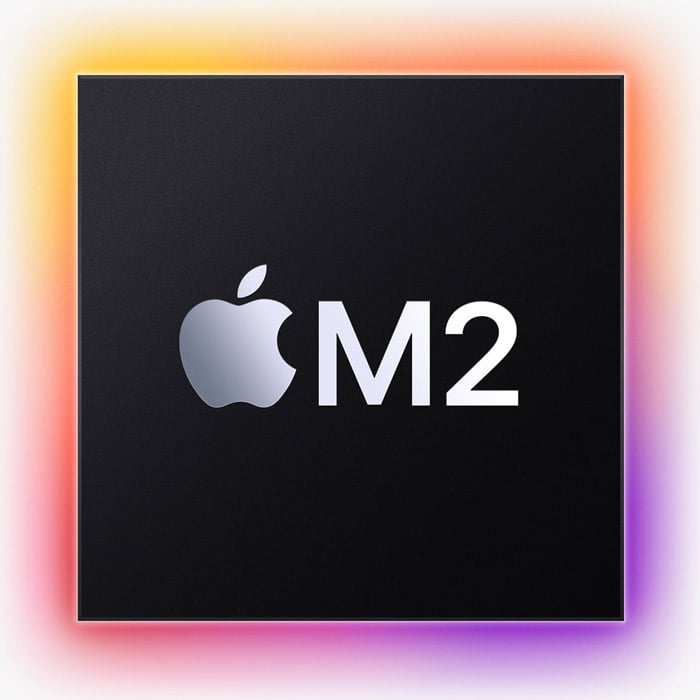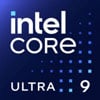Apple M1 Pro (10-CPU 16-GPU) Benchmark, Test and specs
Last updated:
The Apple M1 Pro (10-CPU 16-GPU) is a 10 core processor. It can process 10 threads concurrently and is based on the 1. gen of the Apple M series series. The processor was released in Q3/2021. The Apple M1 Pro (10-CPU 16-GPU) scores 1,768 points with one CPU core in the Geekbench 5 benchmark. When using all CPU cores, the result is 12,574 points.

| Name: | Apple M1 Pro (10-CPU 16-GPU) |
|---|---|
| Family: | Apple M series (25) |
| CPU group: | Apple M1 (9) |
| Architecture: | M1 |
| Segment: | Mobile |
| Generation: | 1 |
| Predecessor: | -- |
| Successor: | Apple M2 Pro (12-CPU 19-GPU) |
CPU Cores and Base Frequency
The 10 CPU cores of the Apple M1 Pro (10-CPU 16-GPU) clock with 0.60 GHz (3.20 GHz). The number of CPU cores and the clock frequency of the processor are largely responsible for the overall performance.
| CPU Cores / Threads: | 10 / 10 |
|---|---|
| Core architecture: | hybrid (big.LITTLE) |
| A-Core: | 8x Firestorm |
| B-Core: | 2x Icestorm |
| Hyperthreading / SMT: | No |
|---|---|
| Overclocking: | No |
| A-Core Frequency: | 0.60 GHz (3.20 GHz) |
| B-Core Frequency: | 0.60 GHz (2.06 GHz) |
Artificial Intelligence and Machine Learning
Processors with the support of artificial intelligence (AI) and machine learning (ML) can process many calculations, especially audio, image and video processing, much faster than classic processors. Algorithms for ML improve their performance the more data they have collected via software. ML tasks can be processed up to 10,000 times faster than with a classic processor.
| AI hardware: | Apple Neural Engine |
|---|---|
| AI specifications: | 16 Neural cores @ 11 TOPS |
Internal Graphics
With the Apple M1 Pro (16 Core), the Apple M1 Pro (10-CPU 16-GPU) has an build in graphic solution. It has 256 SM processors, which have a total of 2048 texture shaders. The iGPU not only enables games, but also significantly accelerates video playback.
| GPU name: | Apple M1 Pro (16 Core) |
|---|---|
| GPU frequency: | 0.39 GHz |
| GPU (Turbo): | 1.30 GHz |
| Compute units: | 256 |
| Shader: | 2048 |
| Hardware Raytracing: | No |
| Release date: | Q3/2021 |
| Max. displays: | 3 |
|---|---|
| Generation: | 1 |
| Direct X: | -- |
| Technology: | 5 nm |
| Max. GPU Memory: | 16 GB |
| Frame Generation: | No |
Hardware codec support
Processors that have an integrated graphics can play videos faster and more efficiently. This can have a positive effect on the battery life of notebooks, for example.
| h265 / HEVC (8 bit): | Decode / Encode |
|---|---|
| h265 / HEVC (10 bit): | Decode / Encode |
| h264: | Decode / Encode |
| VP8: | Decode |
| VP9: | Decode / Encode |
| AV1: | No |
|---|---|
| AVC: | Decode |
| VC-1: | Decode |
| JPEG: | Decode / Encode |
Memory & PCIeThe Apple M1 Pro (10-CPU 16-GPU) supports up to 32 GB memory in up to 2 (Dual Channel) memory channels. This results in a maximum memory bandwidth of 102.4 GB/s. |
|
| Memory type: | Memory bandwidth: |
|---|---|
| LPDDR5-6400 | 102.4 GB/s |
| Max. Memory: | 32 GB |
| Memory channels: | 2 (Dual Channel) |
| ECC: | No |
| PCIe: | 4.0 |
| PCIe Bandwidth: | -- |
Thermal ManagementWith the TDP, the processor manufacturer specifies the cooling solution required for the processor. The Apple M1 Pro (10-CPU 16-GPU) has a TDP of 45 W. |
|
|---|---|
| TDP (PL1 / PBP): | 45 W |
| TDP (PL2): | -- |
| TDP up: | -- |
| TDP down: | -- |
| Tjunction max.: | -- |
Technical details
The Apple M1 Pro (10-CPU 16-GPU) has a 28.00 MB large cache. The processor is manufactured in 5 nm. Modern production increases the efficiency of the processor.
| Technology: | 5 nm |
|---|---|
| Chip design: | Chiplet |
| Socket: | -- |
| L2-Cache: | 28.00 MB |
| L3-Cache: | -- |
| AES-NI: | Yes |
| Operating systems: | macOS |
| Virtualization: | Apple Virtualization Framework |
|---|---|
| Instruction set (ISA): | Armv8.5-A (64 bit) |
| ISA extensions: | Rosetta 2 x86-Emulation |
| Release date: | Q3/2021 |
| Release price: | -- |
| Part Number: | APL 1103 |
| Documents: | -- |
Rate this processor
Benchmark results

The benchmark results for the Apple M1 Pro (10-CPU 16-GPU) have been carefully checked by us. We only publish benchmark results that have been created by us or that have been submitted by a visitor and then checked by a team member. All results are based on and fullfill our benchmark guidelines.
Cinebench 2024 (Single-Core)
The Cinebench 2024 benchmark is based on the Redshift rendering engine, which is also used in Maxon's 3D program Cinema 4D. The benchmark runs are each 10 minutes long to test whether the processor is limited by its heat generation.
|
|
Apple M1 Ultra (64-GPU)
20C 20T @ 3.20 GHz |
||
|
|
Intel Core i7-12700K
12C 20T @ 5.00 GHz |
||
|
|
Intel Core i7-12700KF
12C 20T @ 5.00 GHz |
||
|
|
Apple M1 Pro (10-CPU 16-GPU)
10C 10T @ 3.20 GHz |
||
|
|
Apple M1 Pro (10-CPU 14-GPU)
10C 10T @ 3.20 GHz |
||
|
|
Apple M1 Pro (8-CPU)
8C 8T @ 3.20 GHz |
||
|
|
Intel Core i7-13850HX
20C 28T @ 5.30 GHz |
||
Cinebench 2024 (Multi-Core)
The Multi-Core test of the Cinebench 2024 benchmark uses all cpu cores to render using the Redshift rendering engine, which is also used in Maxons Cinema 4D. The benchmark run is 10 minutes long to test whether the processor is limited by its heat generation.
|
|
Intel Core i7-11700F
8C 16T @ 4.90 GHz |
||
|
|
Intel Core i7-11700K
8C 16T @ 5.00 GHz |
||
|
|
Intel Core i7-11700KF
8C 16T @ 5.00 GHz |
||
|
|
Apple M1 Pro (10-CPU 16-GPU)
10C 10T @ 3.20 GHz |
||
|
|
Apple M1 Pro (10-CPU 14-GPU)
10C 10T @ 3.20 GHz |
||
|
|
Apple M1 Max (24-GPU)
10C 10T @ 3.20 GHz |
||
|
|
Apple M1 Max (32-GPU)
10C 10T @ 3.20 GHz |
||
Cinebench R23 (Single-Core)
Cinebench R23 is the successor of Cinebench R20 and is also based on the Cinema 4 Suite. Cinema 4 is a worldwide used software to create 3D forms. The single-core test only uses one CPU core, the amount of cores or hyperthreading ability doesn't count.
|
|
AMD Ryzen 7 PRO 5750G
8C 16T @ 4.60 GHz |
||
|
|
Intel Core i7-1185G7
4C 8T @ 4.80 GHz |
||
|
|
Intel Core i9-11900T
8C 16T @ 4.90 GHz |
||
|
|
Apple M1 Pro (10-CPU 16-GPU)
10C 10T @ 3.20 GHz |
||
|
|
Apple M1 Ultra (48-GPU)
20C 20T @ 3.20 GHz |
||
|
|
Apple M1 Ultra (64-GPU)
20C 20T @ 3.20 GHz |
||
|
|
Apple M1 Pro (10-CPU 14-GPU)
10C 10T @ 3.20 GHz |
||
Cinebench R23 (Multi-Core)
Cinebench R23 is the successor of Cinebench R20 and is also based on the Cinema 4 Suite. Cinema 4 is a worldwide used software to create 3D forms. The multi-core test involves all CPU cores and taks a big advantage of hyperthreading.
|
|
Intel Core i5-12400
6C 12T @ 4.00 GHz |
||
|
|
Apple M1 Max (24-GPU)
10C 10T @ 3.20 GHz |
||
|
|
Apple M1 Max (32-GPU)
10C 10T @ 3.20 GHz |
||
|
|
Apple M1 Pro (10-CPU 16-GPU)
10C 10T @ 3.20 GHz |
||
|
|
Apple M1 Pro (10-CPU 14-GPU)
10C 10T @ 3.20 GHz |
||
|
|
AMD Ryzen 7 3700X
8C 16T @ 4.00 GHz |
||
|
|
Intel Core i5-12490F
6C 12T @ 4.20 GHz |
||
Geekbench 5, 64bit (Single-Core)
Geekbench 5 is a cross plattform benchmark that heavily uses the systems memory. A fast memory will push the result a lot. The single-core test only uses one CPU core, the amount of cores or hyperthreading ability doesn't count.
|
|
Intel Core i5-12490F
6C 12T @ 4.60 GHz |
||
|
|
Intel Core i3-13100
4C 8T @ 4.50 GHz |
||
|
|
Intel Core i3-13100F
4C 8T @ 4.50 GHz |
||
|
|
Apple M1 Pro (10-CPU 16-GPU)
10C 10T @ 3.20 GHz |
||
|
|
Apple M1 Pro (10-CPU 14-GPU)
10C 10T @ 3.20 GHz |
||
|
|
Apple M1 Pro (8-CPU)
8C 8T @ 3.20 GHz |
||
|
|
Intel Core i5-12600HX
12C 16T @ 4.60 GHz |
||
Geekbench 5, 64bit (Multi-Core)
Geekbench 5 is a cross plattform benchmark that heavily uses the systems memory. A fast memory will push the result a lot. The multi-core test involves all CPU cores and taks a big advantage of hyperthreading.
|
|
Intel Core i9-12900H
14C 20T @ 3.80 GHz |
||
|
|
Intel Core i9-12900HK
14C 20T @ 3.80 GHz |
||
|
|
Intel Xeon Gold 6130T
16C 32T @ 2.60 GHz |
||
|
|
Apple M1 Pro (10-CPU 16-GPU)
10C 10T @ 3.20 GHz |
||
|
|
Apple M1 Pro (10-CPU 14-GPU)
10C 10T @ 3.20 GHz |
||
|
|
Intel Core i5-14400F
10C 16T @ 2.50 GHz |
||
|
|
Intel Core i5-14400
10C 16T @ 2.50 GHz |
||
Geekbench 6 (Single-Core)
Geekbench 6 is a benchmark for modern computers, notebooks and smartphones. What is new is an optimized utilization of newer CPU architectures, e.g. based on the big.LITTLE concept and combining CPU cores of different sizes. The single-core benchmark only evaluates the performance of the fastest CPU core, the number of CPU cores in a processor is irrelevant here.
|
|
AMD Ryzen 5 7540U
6C 12T @ 4.90 GHz |
||
|
|
AMD Ryzen 5 7545U
6C 12T @ 4.90 GHz |
||
|
|
AMD Ryzen 5 8540U
6C 12T @ 4.90 GHz |
||
|
|
Apple M1 Pro (10-CPU 16-GPU)
10C 10T @ 3.20 GHz |
||
|
|
Apple M1 Ultra (48-GPU)
20C 20T @ 3.20 GHz |
||
|
|
Apple M1 Ultra (64-GPU)
20C 20T @ 3.20 GHz |
||
|
|
Apple M1 Pro (10-CPU 14-GPU)
10C 10T @ 3.20 GHz |
||
Geekbench 6 (Multi-Core)
Geekbench 6 is a benchmark for modern computers, notebooks and smartphones. What is new is an optimized utilization of newer CPU architectures, e.g. based on the big.LITTLE concept and combining CPU cores of different sizes. The multi-core benchmark evaluates the performance of all of the processor's CPU cores. Virtual thread improvements such as AMD SMT or Intel's Hyper-Threading have a positive impact on the benchmark result.
|
|
Apple M1 Max (24-GPU)
10C 10T @ 3.20 GHz |
||
|
|
Apple M1 Max (32-GPU)
10C 10T @ 3.20 GHz |
||
|
|
Intel Core i9-12900TE
16C 24T @ 3.00 GHz |
||
|
|
Apple M1 Pro (10-CPU 16-GPU)
10C 10T @ 3.20 GHz |
||
|
|
Apple M1 Pro (10-CPU 14-GPU)
10C 10T @ 3.20 GHz |
||
|
|
Intel Core i7-13620H
10C 16T @ 4.40 GHz |
||
|
|
Intel Xeon W-3265M
24C 48T @ 3.60 GHz |
||
iGPU - FP32 Performance (Single-precision GFLOPS)
The theoretical computing performance of the internal graphics unit of the processor with simple accuracy (32 bit) in GFLOPS. GFLOPS indicates how many billion floating point operations the iGPU can perform per second.
|
|
Apple M2 Pro (12-CPU 19-GPU)
Apple M2 Pro (19 Core) @ 1.40 GHz |
||
|
|
Apple M3 Pro (12-CPU 18-GPU)
Apple M3 Pro (18 Core) @ 1.40 GHz |
||
|
|
Apple M2 Pro (10-CPU 16-GPU)
Apple M2 Pro (16 Core) @ 1.40 GHz |
||
|
|
Apple M1 Pro (10-CPU 16-GPU)
Apple M1 Pro (16 Core) @ 1.30 GHz |
||
|
|
Apple M3 Pro (11-CPU 14-GPU)
Apple M3 Pro (14 Core) @ 1.40 GHz |
||
|
|
Intel Core Ultra 9 185H
Intel Iris Xe 8 Core Graphics 128 EUs (Meteor Lake) @ 2.35 GHz |
||
|
|
Qualcomm Snapdragon X Elite (X1E-84-100)
Qualcomm Adreno X Elite/Plus @ 1.20 GHzNot verified |
||
Blender 3.1 Benchmark
In the Blender Benchmark 3.1, the scenes "monster", "junkshop" and "classroom" are rendered and the time required by the system is measured. In our benchmark we test the CPU and not the graphics card. Blender 3.1 was presented as a standalone version in March 2022.
|
|
Intel Core i7-11700K
8C 16T @ 4.50 GHz |
||
|
|
Intel Core i7-1280P
14C 20T @ 3.00 GHz |
||
|
|
AMD Ryzen Threadripper 1920X
12C 24T @ 3.60 GHz |
||
|
|
Apple M1 Pro (10-CPU 16-GPU)
10C 10T @ 3.20 GHz |
||
|
|
Apple M1 Pro (10-CPU 14-GPU)
10C 10T @ 3.20 GHz |
||
|
|
Apple M1 Max (24-GPU)
10C 10T @ 3.20 GHz |
||
|
|
Apple M1 Max (32-GPU)
10C 10T @ 3.20 GHz |
||
CPU performance per watt (efficiency)
Efficiency of the processor under full load in the Cinebench R23 (multi-core) benchmark. The benchmark result is divided by the average energy required (CPU package power in watts). The higher the value, the more efficient the CPU is under full load.
|
|
AMD Ryzen 7 PRO 8845HS
15,930 CB R23 MC @ 55 W |
||
|
|
AMD Ryzen 9 7950X3D
38,581 CB R23 MC @ 136 W |
||
|
|
AMD Ryzen Threadripper 7980X
98,322 CB R23 MC @ 349 W |
||
|
|
Apple M1 Pro (10-CPU 16-GPU)
12,390 CB R23 MC @ 45 W |
||
|
|
Apple M1 Pro (10-CPU 14-GPU)
12,390 CB R23 MC @ 45 W |
||
|
|
Apple M1 Max (32-GPU)
12,402 CB R23 MC @ 45 W |
||
|
|
Apple M1 Max (24-GPU)
12,402 CB R23 MC @ 45 W |
||
Performance for Artificial Intelligence (AI) and Machine Learning (ML)
Processors with the support of artificial intelligence (AI) and machine learning (ML) can process many calculations, especially audio, image and video processing, much faster than classic processors. The performance is given in the number (trillions) of arithmetic operations per second (TOPS).
|
|
Qualcomm Snapdragon 778G
8C 8T @ 2.40 GHz |
||
|
|
Qualcomm Snapdragon 778G+
8C 8T @ 2.50 GHz |
||
|
|
Qualcomm Snapdragon 780G
8C 8T @ 2.40 GHz |
||
|
|
Apple M1 Pro (10-CPU 16-GPU)
10C 10T @ 0.60 GHz |
||
|
|
Apple M1 (7-GPU)
8C 8T @ 0.60 GHz |
||
|
|
Apple M1 Pro (10-CPU 14-GPU)
10C 10T @ 0.60 GHz |
||
|
|
Apple M1 Max (24-GPU)
10C 10T @ 0.60 GHz |
||
Benchmarks

Cinebench 2024 (SC)
272 entries
272 entries

Cinebench 2024 (MC)
271 entries
271 entries

Cinebench R23 (SC)
586 entries
586 entries

Cinebench R23 (MC)
565 entries
565 entries

Geekbench 5 (SC)
2,488 entries
2,488 entries

Geekbench 5 (MC)
2,461 entries
2,461 entries

Geekbench 6 (SC)
1,757 entries
1,757 entries

Geekbench 6 (MC)
1,703 entries
1,703 entries

FP32 SP (iGPU)
2,042 entries
2,042 entries

Blender 3.1 Benchmark
212 entries
212 entries

CPU performance per watt (efficiency)
109 entries
109 entries

AI / ML Performance
121 entries
121 entries
News and articles for the Apple M1 Pro (10-CPU 16-GPU)

Apple M2 Pro with more CPU cores and production in 3 nm ?
Posted by Stefan on 2022-06-28
After Apple surprisingly presented the normal Apple M2 processor as the first successor to the Apple M1 already in June 2022, the Apple M2 Pro and the Apple M2 Max may follow in autumn. The difference in performance compared to the basic version could be even greater this time and range from 25 to 40 percent.
In this article we describe how Apple could realize this and why the price should also go up.
In this article we describe how Apple could realize this and why the price should also go up.

Apple M2 vs Apple M1 - What are the differences?
Posted by Stefan on 2022-06-09
During WWDC 2022 on June 6th, 2022 Apple surprisingly presented its new Apple M2 processor. This will initially be installed in a completely revised Apple MacBook Air with 13.6 inches, a even thinner form factor and new colors. Apple also updated the already known (old) Apple MacBook Pro 13.3 with touch bar.
Many leakers had counted on Apple not presenting its new second-generation M processor until the fall. But things turned out differently. And there is very likely a reason for that: the improvements in the Apple M2 are limited compared to the predecessor.
Many leakers had counted on Apple not presenting its new second-generation M processor until the fall. But things turned out differently. And there is very likely a reason for that: the improvements in the Apple M2 are limited compared to the predecessor.
Description of the processor
The Apple M1X is the second Apple processor for notebooks and desktop PCs. In contrast to the Apple M1, the manufacturer relies on 10 "Firestorm" cores that provide very fast computing power. The 2 "Icestorm" cores of the Apple M1 are also found in the big brother. The "Icestorm" CPU cores are responsible for the processors high efficiency and mainly take care of background tasks. The efficiency cores support the performance cores during high computing loads.The Apple M1X has a clock frequency of 3.2 GHz in the base. The processor does not have a turbo mode, but it can reduce its clock frequency significantly internally. Modern AMD or Intel processors, for example, do this.
Like the Apple M1, the Apple M1X is also based on ARM-64 technology, but was designed by Apple itself. It has a very high computing power, which does not have to hide from modern processors from other manufacturers. The processor is manufactured in 5 nm at TSMC and is one of the most efficient processors on the market. Due to its high efficiency, its heat development is also relatively low. Therefore, the processor can keep its computing power stable even in longer load phases. However, this requires an active fan.
Apple also relies on its own creation for the iGPU (internal graphics). The Apple M1X 16 core graphics achieves 5.2 TFLOPS in FP32 calculations (single precision). This makes it slightly faster than an NVIDIA GeForce GTX 1060 ti (4.7 TFLOPS) and slightly slower than an NVIDIA GeForce GTX 1070 (6.5 TFLOPS).
The Apple M1X supports up to 64 GB of LPDDR4X memory and PCIe 4.0, and up to 2 external displays can be connected to the system via USB-C or HDMI (plus 1 internal display).
Popular comparisons
back to index















